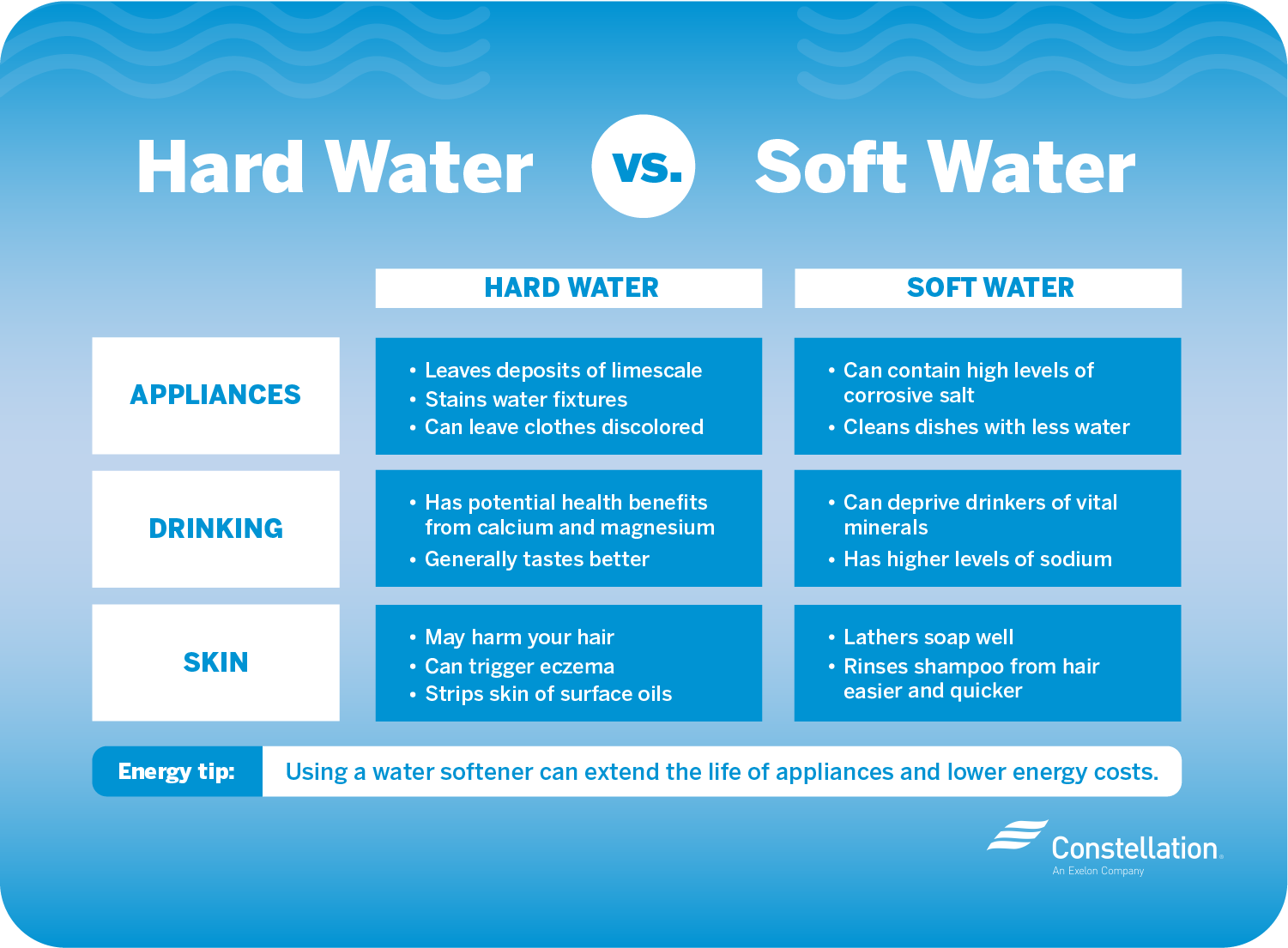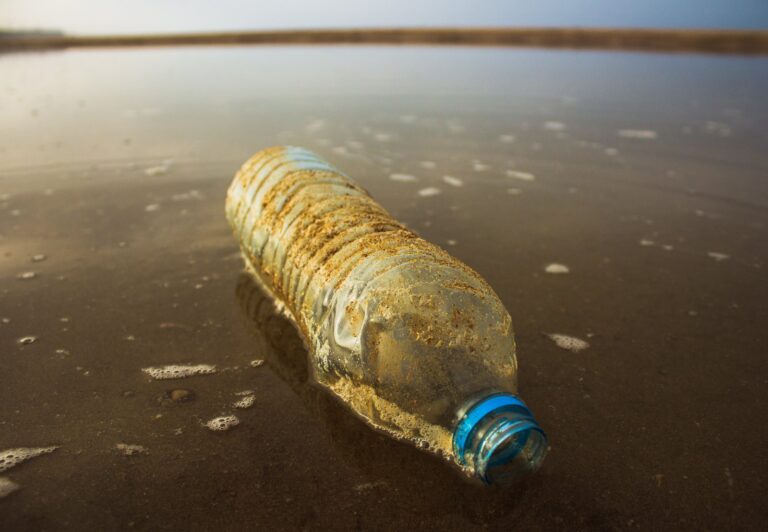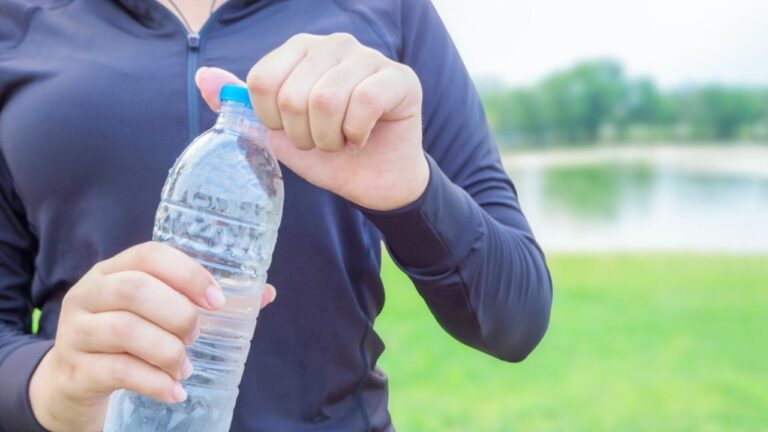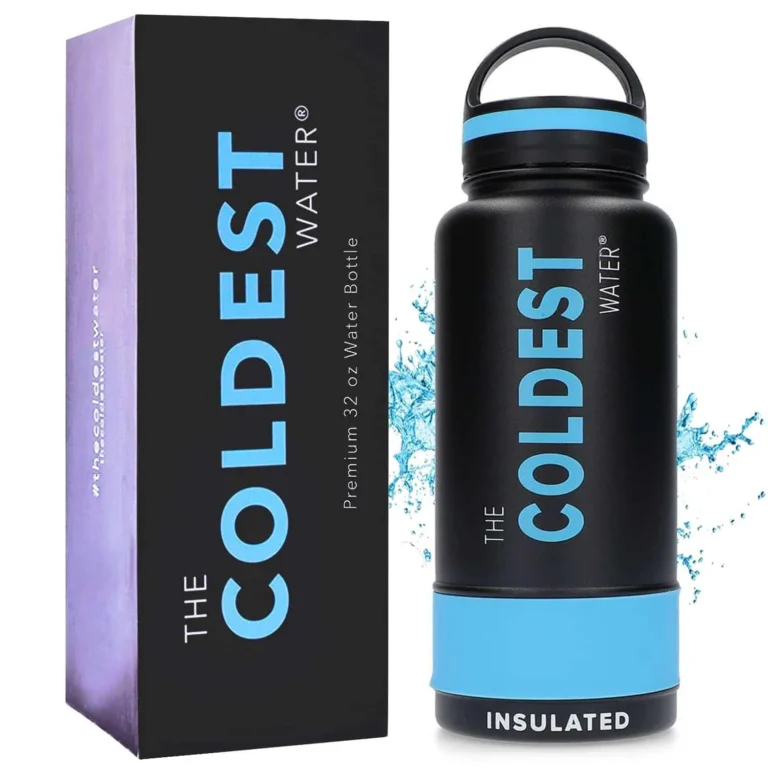Have you ever wondered whether the bottled water you’re drinking is hard or soft? It’s hard to know the answer just by examining the label or packaging. The truth is, there’s a lot more to bottled water than meets the eye. Hard and soft water can have a significant impact on our bodies, as well as the appliances we use to filter and store water. In this blog post, we’ll explore the differences between hard and soft water, and help you understand which one might be the best choice for your health and home. So, let’s dive in!
Bottled Water Hard or Soft?
The terms “hard” and “soft” are typically used to describe the mineral content of water, specifically in the context of tap water. Bottled water, on the other hand, can vary in its mineral content depending on the source and the brand. Some bottled water is sourced from natural springs or wells and may have minerals present, while others undergo purification processes that remove minerals, resulting in “purified” or “distilled” water.
Therefore, bottled water can be either hard or soft, depending on its specific mineral composition. If you’re looking for information on a particular brand or type of bottled water, it’s best to refer to the label or the manufacturer’s website for details about its mineral content.
Definition of bottled water
Bottled water is a popular beverage choice for people worldwide. It refers to water that is sealed in a container, usually plastic or glass, for consumption purposes. Bottled water is widely preferred as it is readily available, portable, and affordable. The water can be sourced from natural springs, aquifers, municipal supplies, or even collected as rainwater. However, the degree of hardness and mineral content in bottled water can vary based on the source and treatment processes. Bottled water typically contains essential minerals such as calcium, magnesium, and sodium, which can be beneficial to health if consumed in moderation.
Explanation of hard and soft water
Water can be classified as either hard or soft. This classification is based on the amount of minerals present in the water, specifically calcium and magnesium. Hard water has high mineral content which makes it difficult for soap to lather, leaves mineral deposits on dishes and clothes, and can cause build-up in pipes which lowers water pressure. On the other hand, soft water has a low mineral content, making it easier for soap to lather and leaving no mineral stains on clothes or dishes. While hard water can be beneficial for mineral intake, it can also cause skin and hair dryness, especially for those with eczema.
II. Characteristics of Hard Water
High mineral content
When it comes to the mineral content of bottled water, high mineral content can either be a good or bad thing depending on your perspective. For those who care about getting a good intake of minerals on a daily basis, high mineral content is a definite plus. Calcium and magnesium, for instance, are two minerals that are commonly found in bottled water and are beneficial for the body. However, if you’re concerned about household plumbing systems and the formation of limescale, high mineral content in water may be viewed as undesirable. It’s important to note, though, that each type of bottled water has its own level of mineral content, so you can choose what’s best for your needs.
Presence of calcium and magnesium ions
Calcium and magnesium ions are commonly found in hard water. These minerals can be beneficial in small amounts, but when they are present in high concentrations they can cause problems. Hard water can cause scale buildup in pipes and appliances, which can lead to reduced water flow and damage. On a positive note, some studies suggest that drinking hard water may have some health benefits. Calcium and magnesium are essential minerals that our bodies need, and hard water can be a good source of these minerals. Even though hard water has some downsides, it’s not considered harmful to our health, so there’s no need to be too concerned.
Formation of limescale
Limescale is a common problem that arises from hard water. It is caused by the build-up of minerals like calcium and magnesium on surfaces that come into contact with hard water, such as pipes, kettles, and appliances. This build-up occurs through a process called calcification, which can lead to deposits that clog plumbing and reduce the efficiency of equipment. Limescale can also affect the taste of water, leaving it with a slightly bitter aftertaste. To combat this issue, many people choose to use water softeners or other methods to reduce the mineral content of their water.
III. Characteristics of Soft Water
Low mineral content
If you’re looking for a bottled water that is on the softer side, then you might want to try one that has a low mineral content. These types of waters have less calcium and magnesium ions than their hard water counterparts, which can make them easier on the skin and hair. Another benefit of low mineral content water is that it lathers easily with soap, making it a great option for hand washing, dishwashing, and laundry. So, if you’re someone who is looking for a water that is gentle on your skin and makes everyday tasks a little easier, then a low mineral content water might be the perfect choice for you.
Lack of calcium and magnesium ions
Bottled water that lacks calcium and magnesium ions is often referred to as “soft” water. This type of water is known for being easy to lather with soap, making it a popular choice for household use. While hard water may contain high levels of these minerals, which can lead to the formation of limescale in pipes and appliances, soft water has its own benefits. For example, it can be easier on the skin and hair, and may even taste better to some people. In addition, soft water doesn’t pose any health risks, according to the U.S. National Research Council, and may even be beneficial for those who struggle to get enough calcium and magnesium in their diet.
Easy lathering of soap
When it comes to lathering soap, the type of water you use can make a big difference. Soft water makes it easy to create a soapy lather with just a small amount of soap, while hard water requires a lot more soap and might still leave soap scum behind. This is because minerals in hard water react with soaps and decrease their ability to lather properly. However, there are ways to combat this issue, such as investing in a water softener or using body wash instead of bar soap. With a little effort, you can achieve that foamy lather that makes cleaning a breeze!
IV. Types of Bottled Water
Spring water
Spring water is a popular type of bottled water that many people enjoy. It is collected in large aquifers that are high in calcium and magnesium, which gives it a unique taste and provides the body with beneficial minerals. The source of spring water must meet strict hygiene standards and can be further treated to ensure safety and quality. Thanks to the natural filtration process that takes place as the water flows over and through rocks, spring water is especially rich in trace minerals. Many people prefer spring water because it has a refreshing taste and is perceived to be of higher quality than tap water.
Purified water
Purified water is a great alternative to tap water. It’s gone through a process that removes all impurities and unwanted minerals. That means it’s free of any contaminants and beneficial health-wise. Purified water can be obtained through various filtration systems: reverse osmosis, carbon filtration, or deionization. This type of water has a pleasant and soft taste, making it great for tea, coffee, and juices. Plus, it’s perfect for those who are health-conscious and want to avoid drinking impurities. If you care about your family’s health and the quality of your water, consider opting for purified water.
Mineral water
Mineral water is a popular choice for people who want to stay hydrated, but also want to consume essential minerals. It’s sourced from underground aquifers that contain high levels of natural minerals like calcium, magnesium, and potassium. Unlike tap water, mineral water doesn’t go through any artificial treatment processes, which means it retains its mineral content. It’s a great choice for people who want to ensure that they are getting their recommended daily intake of minerals, but don’t want to rely on supplements. Additionally, mineral water is a refreshing alternative to sugary drinks and can help improve the taste of recipes that require water.
V. Comparison of Different Bottled Water Types
Hardness levels
When we talk about the hardness of bottled water, it’s important to understand that there are varying levels of mineral content and those minerals determine whether the water is considered hard or soft. Generally, water is considered hard if it contains higher levels of calcium and magnesium ions, but soft if it has a lower concentration of these minerals. The hardness of water is measured in terms of grains per gallon (gpg) or degrees of general hardness (dGH). Mineral water and spring water are usually considered hard, while purified or distilled water is typically soft. Ultimately, the level of hardness that’s best for you depends on your personal preference and health needs.
Mineral content
It’s fascinating to learn about the different mineral content in bottled water. Did you know that magnesium, a critical mineral for promoting bone strength, immunity, and nerve function, is abundant in mineral water? On the other hand, soft water has low levels of calcium and magnesium, making it easier to lather soap and leaving no stains on clothes or dishes. However, soft water often leaves a slight salty taste due to a higher concentration of sodium, which can be a health risk for people with high blood pressure. Regardless of which one you prefer, understanding the mineral content in your drinking water can help you make informed choices for your health.
Health benefits
Drinking water, whether it’s hard or soft, is crucial to maintain optimal health. However, there are some benefits to drinking hard water due to its high mineral content, such as calcium and magnesium. These essential minerals are crucial for strong teeth and bones, maintaining a healthy heart, and preventing muscle cramps. According to some studies, drinking hard water may even have cardiovascular benefits. On the other hand, drinking soft water may be preferable for those on a low-sodium diet as hard water contains high concentrations of sodium. Ultimately, it’s essential to choose the type of water best suited to your individual needs and health.
VI. Factors Affecting Hardness of Bottled Water
Source of water
The source of bottled water is an important factor to consider. Spring water is sourced from underground aquifers and usually contains high mineral levels, which make it hard water. Artesian water comes from an onshore aquifer that is under pressure and rises to the surface on its own. Purified water is treated to remove impurities, while mineral water contains added minerals for health benefits. Rainwater and melted ice from glaciers and icebergs are also becoming popular sources for bottled water. It’s important to research the source of your bottled water to ensure it meets your needs and preferences.
Treatment processes
Water treatment processes vary depending on the source and type of water. Municipal water supplies are treated through a combination of physical, chemical, and biological processes to remove contaminants and ensure safe drinking water. This includes processes such as coagulation, sedimentation, filtration, and disinfection. Bottled water undergoes similar treatment processes, such as micron filtration, reverse osmosis, and UV treatment to remove impurities and ensure the quality of the product. However, it’s important to note that not all bottled water is created equal and some may still contain high levels of minerals or contaminants. Knowing the source and treatment process can help consumers make informed decisions about their water choices.
Bottle material
The type of material used in making bottled water is an important consideration for many people. Most commonly used materials for water bottles include plastic made of polyethylene terephthalate (PET), high-density polyethylene (HDPE), and low-density polyethylene (LDPE). However, there is growing concern over the leaching of harmful chemicals from plastic water bottles, especially when exposed to high temperatures. As such, many people are opting for glass or stainless steel alternatives. While these materials may be more durable in the long term, they can be heavier and more difficult to transport. Ultimately, the choice of material for bottled water comes down to personal preference and concern for health and the environment.
VII. Importance of Knowing the Hardness of Bottled Water
Health considerations
When it comes to health considerations, it’s important to note that while hard water may contain beneficial minerals like calcium and magnesium, it can also lead to dry skin and hair due to an imbalance in pH levels. On the other hand, soft water may have a higher concentration of sodium which can be a health risk for people with high blood pressure. Additionally, soft water may pick up residual lead in older pipes. It’s important to choose the type of water that works best for your specific health needs and to take into consideration any potential health risks associated with high mineral or sodium content
Household and industrial applications
Understanding the hardness of bottled water is important when it comes to determining its household and industrial uses. Hard water can cause mineral buildup in pipes and appliances, leading to maintenance issues and reduced efficiency. On the other hand, soft water is ideal for washing clothes, dishes, and even your hair and skin due to its easy lathering properties. In industrial applications, hard water can result in scaling in boilers and cooling towers, affecting efficiency and increasing energy costs. Softened water is often used in manufacturing and printing processes to prevent equipment damage and maintain quality. Overall, knowing the hardness of bottled water can help you choose the right type of water for your household or industrial applications.
Environmental impact
It’s important to consider the environmental impact of our water choices, whether it be tap or bottled water. A groundbreaking study estimates that the environmental impact of bottled water is 3500 times greater than tap water. Additionally, if you choose to soften your water, it can have negative impacts on the environment due to the waste stream created when regenerating the softener beads. However, there are also benefits to using soft water, such as preventing mineral buildup and lengthening the life of appliances. It’s up to us to weigh the pros and cons and make informed decisions about our water usage to minimize our impact on the environment.




